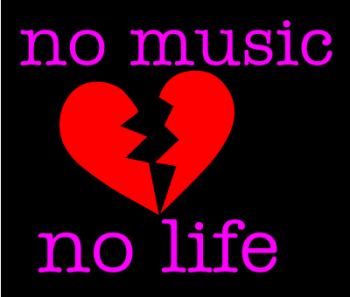
“The American Society of Composers, Authors, and Publishers (ASCAP) is an American not-for-profit performance rights organization (PRO) that protects its members’ musical copyrights by monitoring public performances of their music, whether via a broadcast or live performance and compensating them accordingly.
ASCAP collects licensing fees from users of music created by ASCAP members then distributes them back to its members as royalties. In effect, the arrangement is the product of a compromise: when a song is played, the user does not have to pay the copyright holder directly, nor does the music creator have to bill a radio station for use of a song.
In 2012, ASCAP collected over $941 million in licensing fees and distributed $828.7 million in royalties to its members, with an 11.6 percent operating expense ratio. As of July 2013, ASCAP membership included over 460,000 songwriters, composers, and music publishers.
In the United States, ASCAP competes with three other PRO’s – Broadcast Music, Inc. (BMI), the Society of European Stage Authors and Composers (SESAC), and Global Music Rights (GMR).” Source Wikipedia.
For many local performing musicians ASCAP, BMI, and other organizations have become known as the music police. Many performers play cover songs or songs written by other artists. There are very few, if any, groups out there that can perform 4 hours worth of music of their own writing. Most gigs in the Idaho area tend to run from 3 to 4 hours. What this means for a musician that doesn’t write all of their own songs is that they have to perform anywhere from 36 to 65 songs at any one given performance and most of these, if not all, will be cover songs.
Many venues, bar and lounge owners that have live music are being approached by these organizations and told that they have to pay a licensing fee or get sued. The fees are huge for many venue owners. These fees range from a few hundred dollars to several thousand, depending on the venue. Is this extortion? On one hand, if the royalties are actually being paid to the artists and their estates like they claim, then no, not really. However, on the other hand, for the musicians that perform the songs by other artists, shouldn’t they also be getting royalties for promoting that particular musician’s songs and their groups?
Some venue owners have stopped having live music altogether because of the heavy fees. This not only affects the local music industry, it also affects the owners themselves because they lose revenue from beverage and food sales because they refuse to or can’t afford to pay these heavy fees. Some owners have said they should charge the fees back to the musicians that perform at their venues. This would never work because it would only cause the musicians to raise their performance rates to cover the additional costs. Musicians don’t get paid nearly enough as it is.
So who loses in the end? At the end of the day, as is usually the case, the little guy. The venues lose out on really good local musicians if they don’t pay the fees, the customers lose out because there isn’t live music, and the musicians lose out because the number of venues to perform at becoming less and less. It begs the question, is it really such a good thing these organizations are doing or is it just a form of strong-armed extortion?
ASCAP, BMI, SESAC, and GMR are nothing but money grubbers. There is no need for four of them. Having had a bar for 28 years I had to deal with them all the time. They are some the biggest parasites in the entertainment business. I never bought their licenses and never got sued. They will threaten you and make all kinds of claims about how you are breaking the law. When I did have music,I used groups that had all their own music. And they still claimed I need a license and no one was capable of writing their own material unless they belonged to one of these organization. If you have television, they want money, if you have a juke box, they want money. If you charged a cover charge to come in, they want money. If you do karaoke, they want money. By the time you paid for all these items, you would be 3 to 4 thousand dollars in to music licenses.
There is a reason they are a not for profit. This way they can keep as much of the money as they want. All they have to do is show no profit at the end of the year for tax proposes. Based on their claimed 11.6 % operating costs, they make some where around 81 + million dollars a year. All for the ability to chase you around and extort money from you. All the members of these licensing organization get apiece of the money even tho their music is never use by anyone, ASCAP claims 460,000 members alone. There are not that many famous writers, composers, and musicians in the business. And there are four of the organization collecting money for all of these people.
Musician need to get paid for their work, but really people, how much do they need and why does a few people that set all this up get to make all that money for nothing.
I don’t have an answer, this way is not working for the end consumer, and that is the people who listen to the music. just my 2¢
LikeLike
Thank you for your reply Miss Belle. I couldn’t agree more, however, as a writer I try to be objective. As a musician, it torques my ass! Cheers!
LikeLike